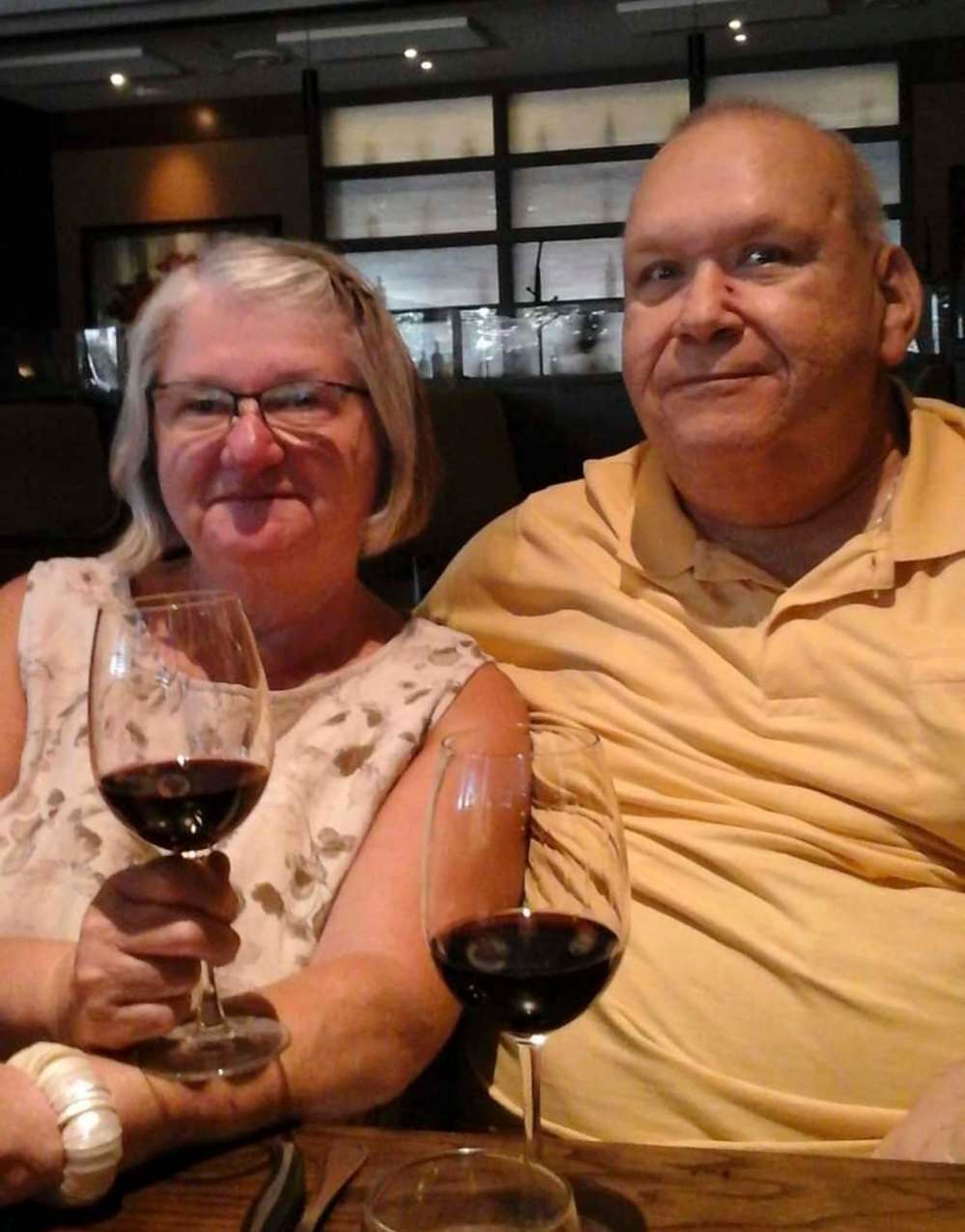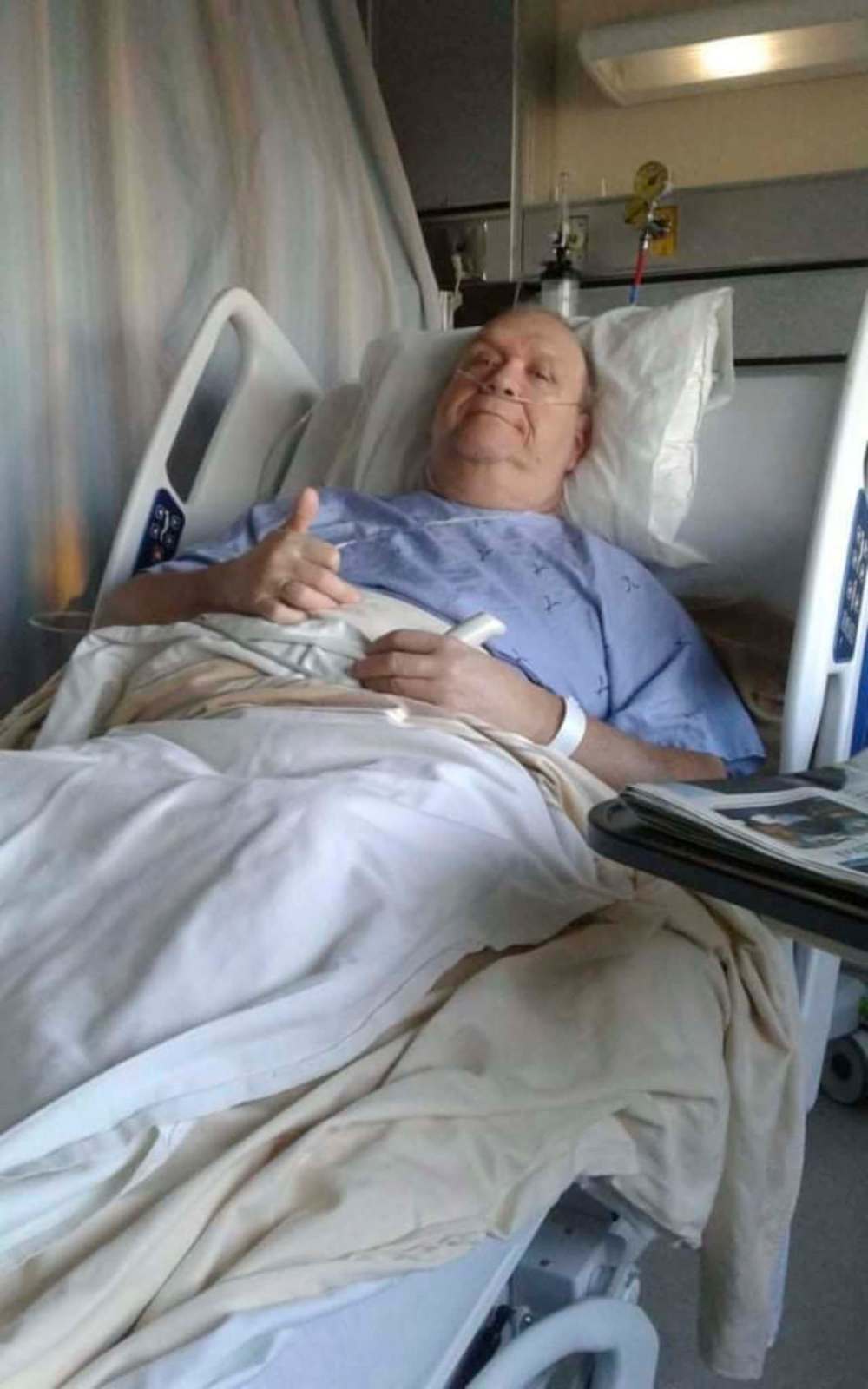‘Our health care right now is just totally in the toilet’ Winnipeg woman postpones her own surgery to advocate for unwell husband
Read this article for free:
or
Already have an account? Log in here »
To continue reading, please subscribe:
Monthly Digital Subscription
$0 for the first 4 weeks*
- Enjoy unlimited reading on winnipegfreepress.com
- Read the E-Edition, our digital replica newspaper
- Access News Break, our award-winning app
- Play interactive puzzles
*No charge for 4 weeks then price increases to the regular rate of $19.00 plus GST every four weeks. Offer available to new and qualified returning subscribers only. Cancel any time.
Monthly Digital Subscription
$4.75/week*
- Enjoy unlimited reading on winnipegfreepress.com
- Read the E-Edition, our digital replica newspaper
- Access News Break, our award-winning app
- Play interactive puzzles
*Billed as $19 plus GST every four weeks. Cancel any time.
To continue reading, please subscribe:
Add Free Press access to your Brandon Sun subscription for only an additional
$1 for the first 4 weeks*
*Your next subscription payment will increase by $1.00 and you will be charged $16.99 plus GST for four weeks. After four weeks, your payment will increase to $23.99 plus GST every four weeks.
Read unlimited articles for free today:
or
Already have an account? Log in here »
Hey there, time traveller!
This article was published 29/11/2021 (1474 days ago), so information in it may no longer be current.
Barbara Halabut realized she’d been crying when her mask felt damp. Firefighters were slowly lifting her husband Gregory off the steps of her bungalow, after a month of being shepherded around Winnipeg hospitals left him unable to make it up the stairs of their Garden City bungalow.
She was supposed to be preparing for arm surgery she’s spent a year waiting for, but delayed it to help advocate for Gregory, navigating through medical jargon and mixed messages from health-care workers who seem overwhelmed.
“The tears were flowing down my eyes, because I’m thinking, ‘What’s happening to this system of ours?'” Barbara said. “Right now our health-care system just totally sucks.”
Their story is the end result of a health-care system weakened by controversial reforms that buckled during the pandemic.
Gregory weighs 300 pounds, has a pacemaker and undergoes dialysis treatment. He felt a sudden pain on Oct. 7, and found it hard to move around the house with his walker.
Barbara says it took 15 minutes to get a 911 operator on the line, who said to wait an hour for an ambulance. She took his temperature, and told the operator he was at 39.7 C (103.4 F), who said it was a “code four” situation.
About 15 minutes later, paramedics arrived and called for firefighters to help get Gregory onto a stretcher and transferred to Seven Oaks General Hospital. Within hours, a nurse called to tell Barbara her husband had a perforated appendix and was being transferred to St. Boniface Hospital for surgery.
The couple never got an explanation for the transfer, suspecting that it was because of the 2019 closure of Seven Oaks’ emergency room. The WRHA insists the transfer happened under the acute-care protocol that it has had for years.
“They’ve got to automatically put people in an ambulance and take them to another hospital, and sometime that banging and bouncing (during the ride) will finish you off itself in Winnipeg,” Gregory said.
A week later, when Barbara was cleared to visit, Gregory had been placed in a “step-down unit.”
He’d signed a consent form for surgery, but his care team cancelled that plan, for reasons that have never been made clear to the couple. Instead, they opted to put Gregory on antibiotics for a few weeks, send him home and schedule a colonoscopy.
Gregory wears a leg brace and gets around with a walker or in a wheelchair. But by the time he got off antibiotics, overburdened staff at St. Boniface weren’t able to provide adequate physiotherapy. They had him walk around the hallways and try a few stairs. It wasn’t enough exercise.

He was discharged Nov. 8. When he got home, Gregory managed to get up 2 1/2 steps of the three that lead into his bungalow. He couldn’t get up the last one, complaining of blurry vision and feeling light-headed. A friend held the walker in the doorway so Gregory could gradually slip to the ground.
“He had no leg or upper-body strength to do that last step, so he just went down on the floor,” said Barbara, who called for firefighters.
They determined he had low blood pressure and sent him back to the hospital. Less than three hours after he’d been sent home.
“I don’t know why they discharged him,” said Barbara.
By Nov. 20, Gregory was transferred to Seven Oaks’ geriatric rehabilitation section, where he’s had more physiotherapy work, with exercises using stretching bands and weights on his ankles. An occupational therapist is making sure he can safely get between his bed and a toilet as well as his walker and a wheelchair.
Without that therapy the 65-year-old would likely be joining the wait list for a personal-care home bed.
“There’s people here working their hearts out,” he said, adding front-line staff care about their patients but have impossible demands in the overwhelmed health-care system. He figures that’s why he was sent home before he was ready.
“Some of those poor people; they’re running, running, running,” he said. “And it’s just not right.”

Meanwhile, Barbara has been waiting a year to get her arm fixed.
Massages and physiotherapy haven’t helped with her torn bicep, which the 63 year old attributed to age and regular activity. In March, her doctor referred her for an X-ray, which was finally done in August at Pan Am Clinic.
In mid-October, she got a November surgery date, but declined when they told her she’d spend four weeks in a sling, because she feels obligated to drive to the hospital, advocate for her husband and then help with his dialysis when he gets home.
It’s already an ordeal to find parking and pass through COVID screening and then get to the ward in time for meetings with specialists.
“We’re just not getting straight answers from anybody,” she said. “There are so many different hoops we seem to be going through, with one person telling us this and the next person telling us that.”
The couple say health-care in Manitoba keeps deteriorating. In 2018, Gregory spent four months at Seven Oaks after a knee replacement that uncovered a spinal issue, requiring a separate operation. The staff seemed overworked but attentive to their needs and communicated a lot more clearly.
Now, 911 operators talk about “code four” and nurses talk about transferring to a “step-down unit.”
They have friends among the Manitobans transferred to faraway health facilities as the province tries clearing hospital capacity for a rise in COVID-19 infections.
“The compassion just isn’t there; the whole system is just not there,” she said. “Our health care right now is just totally in the toilet.”
The Winnipeg Regional Health Authority had no response to that characterization.
“Although we are not at liberty to publicly discuss the care of individual patients, we would strongly encourage anyone with concerns or questions about their care to contact the patient-relations office at the relevant facility,” wrote a spokesman who provided a phone number.
Barbara’s not sure if that will help others navigate a health system where an ambulance takes an hour to arrive unless someone thinks of doing a temperature check, and where multiple nurses tell patients they’re working well beyond their usual 12-hour shift.
“I’m just frazzled,” said Barbara, her voice shaking. “If it’s like this for him, what is it like for other people?”
dylan.robertson@freepress.mb.ca
History
Updated on Monday, November 29, 2021 9:03 PM CST: Fixes typo.
Updated on Tuesday, November 30, 2021 9:50 AM CST: Corrects time reference to four weeks














